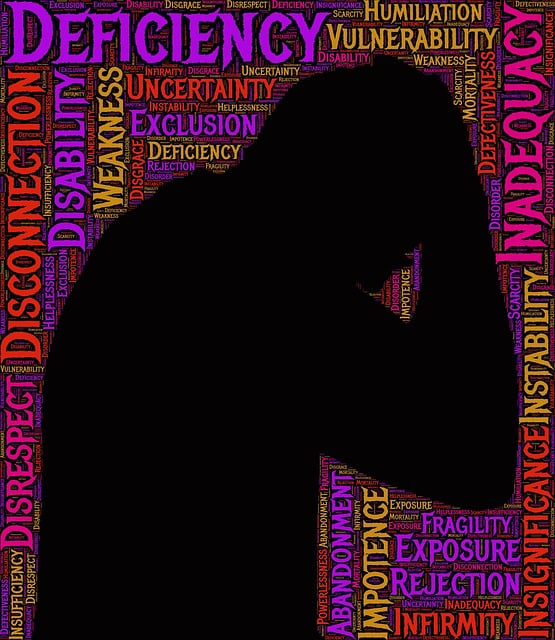Broomfield Russian Speaking Therapy combines thorough risk assessment, modern communication techniques, and holistic well-being strategies for comprehensive mental health care. This approach addresses language and cultural barriers, enhances emotional intelligence, and empowers both therapists and clients with effective coping mechanisms. By prioritizing self-care, professional development, and robust policy analysis, Broomfield Russian Speaking Therapy fosters a supportive environment that mitigates risks and promotes optimal client outcomes.
Mental health professionals constantly navigate complex environments, making risk assessment an indispensable skill. This article guides you through the intricacies of risk management, focusing on a practical approach—the Broomfield Russian Speaking Therapy (BRST) method. We explore key areas like understanding risk assessment, identifying vulnerabilities, and ethical considerations unique to mental health practice. By incorporating BRST strategies, professionals can effectively mitigate risks, ensuring safe and nurturing clinical settings for diverse client populations.
- Understanding Risk Assessment in Mental Health Practice
- The Broomfield Russian Speaking Therapy Approach
- Identifying Potential Risks and Vulnerabilities
- Strategies for Mitigating Risks in Clinical Settings
- Ethical Considerations and Professional Responsibilities
Understanding Risk Assessment in Mental Health Practice

Risk assessment is a cornerstone of mental health practice, crucial for ensuring client safety and effective therapy. It involves meticulously evaluating factors that could impact a client’s well-being, including their history, current circumstances, and potential triggers. At Broomfield Russian Speaking Therapy, we understand that navigating complex client profiles requires a structured approach to risk assessment. This process involves identifying vulnerabilities, past traumas, and any behaviors or thoughts that might signal escalating risks.
By integrating Stress Reduction Methods and Self-Awareness Exercises into our practice, we empower clients to recognize their own emotional triggers and develop coping strategies. Equally important, thorough risk assessments allow mental health professionals to anticipate potential crises, implement safety plans, and offer appropriate interventions promptly. This proactive approach not only safeguards clients but also fosters a supportive environment conducive to Mental Wellness.
The Broomfield Russian Speaking Therapy Approach

The Broomfield Russian Speaking Therapy Approach is a unique and innovative method that combines elements of traditional therapy with modern communication strategies. This approach, developed by experts in mental health, aims to create a safe and supportive environment for individuals who may face language barriers or cultural challenges when seeking therapy. By utilizing the Russian language, this methodology not only addresses specific emotional intelligence needs but also fosters a deeper connection between therapist and client.
The core principles of Broomfield Russian Speaking Therapy focus on enhancing communication, building trust, and promoting understanding. Therapists are trained to employ effective communication strategies that cater to the unique cultural background of their clients. This personalized approach helps individuals express themselves openly, while also teaching them valuable mind over matter techniques to manage mental health issues effectively. The therapy’s holistic nature ensures that emotional intelligence is developed, allowing clients to navigate complex emotions and improve overall well-being.
Identifying Potential Risks and Vulnerabilities

Identifying Potential Risks and Vulnerabilities for Mental Health Professionals, especially those involved in Broomfield Russian Speaking Therapy, requires a nuanced approach. Therapists may face unique challenges stemming from cultural differences, language barriers, and the sensitive nature of their work. Effective risk assessment should encompass both personal and professional factors that can impact mental wellness. This includes evaluating individual resilience levels, past traumatic experiences, and current stress management strategies.
Moreover, considering the evolving nature of therapeutic practices, regular review of communication strategies is essential. Mental Wellness Coaching Programs Development can play a pivotal role in enhancing professionals’ ability to navigate complex client interactions. By fostering open dialogue, encouraging self-care practices, and providing platforms for peer support, these programs contribute to building resilience—a cornerstone in mitigating risks within the therapy setting.
Strategies for Mitigating Risks in Clinical Settings

In clinical settings, mitigating risks for mental health professionals involves a multi-faceted approach that goes beyond standard safety protocols. At Broomfield Russian Speaking Therapy, we emphasize proactive strategies to foster a resilient and supportive environment. One key method is integrating mood management techniques into daily practice, empowering therapists to recognize and address their own emotional states, thereby enhancing client care. Additionally, building resilience among professionals through targeted training can significantly reduce burnout and improve overall well-being.
Moreover, advocating for robust mental health policy analysis ensures that clinical settings are equipped with the necessary resources and guidelines to support therapists. This includes implementing evidence-based practices and promoting open dialogue about mental health challenges. By combining these strategies—mood management, resilience building, and policy advocacy—clinical environments can be transformed into hubs of safety and healing, benefiting both professionals and their clients alike.
Ethical Considerations and Professional Responsibilities

Mental health professionals, like those offering Broomfield Russian Speaking Therapy, operate within a complex web of ethical considerations and professional responsibilities. Their work demands unwavering commitment to client confidentiality, maintaining clear boundaries, and prioritizing their own well-being. Ethical practices not only safeguard clients but also ensure therapists remain effective and avoid burnout.
Effective crisis intervention guidance and risk management planning are integral components of this responsibility. Professionals must be prepared to navigate challenging situations, providing timely support while adhering to ethical standards. Additionally, fostering self-care routine development for better mental health is crucial. Therapists should actively engage in practices that enhance their resilience, allowing them to effectively serve their clients without compromising their own psychological integrity.
Mental health professionals, like their patients, face unique challenges that require proactive risk assessment. By adopting approaches such as the Broomfield Russian Speaking Therapy, which prioritises cultural sensitivity and comprehensive risk identification, practitioners can better navigate potential vulnerabilities. Integrating effective strategies for risk mitigation into clinical settings, alongside ethical considerations, is essential to ensuring a safe and supportive environment for both clients and professionals. Regularly reviewing and updating these practices is vital to staying abreast of evolving challenges and maintaining high standards in mental health care.














